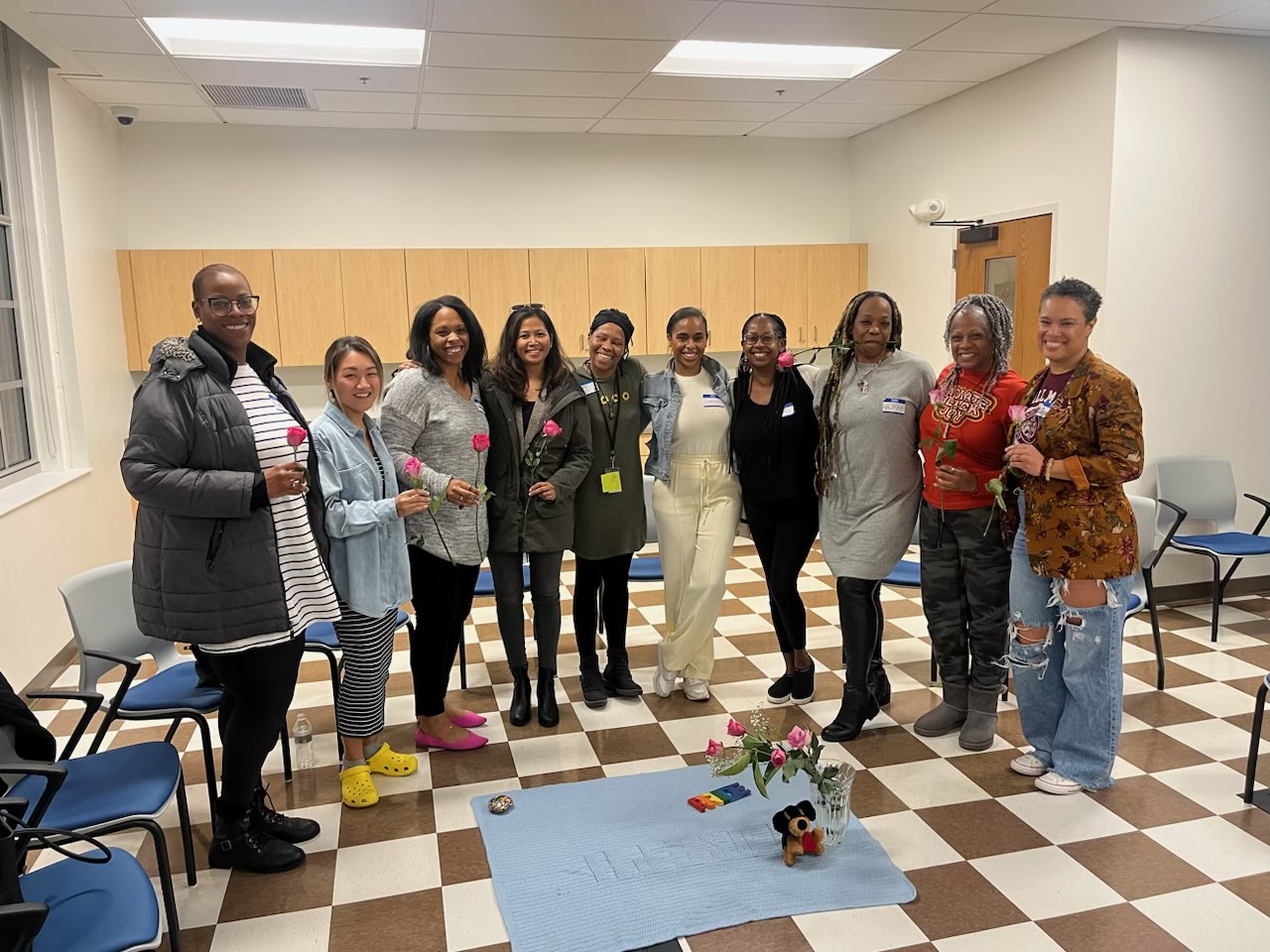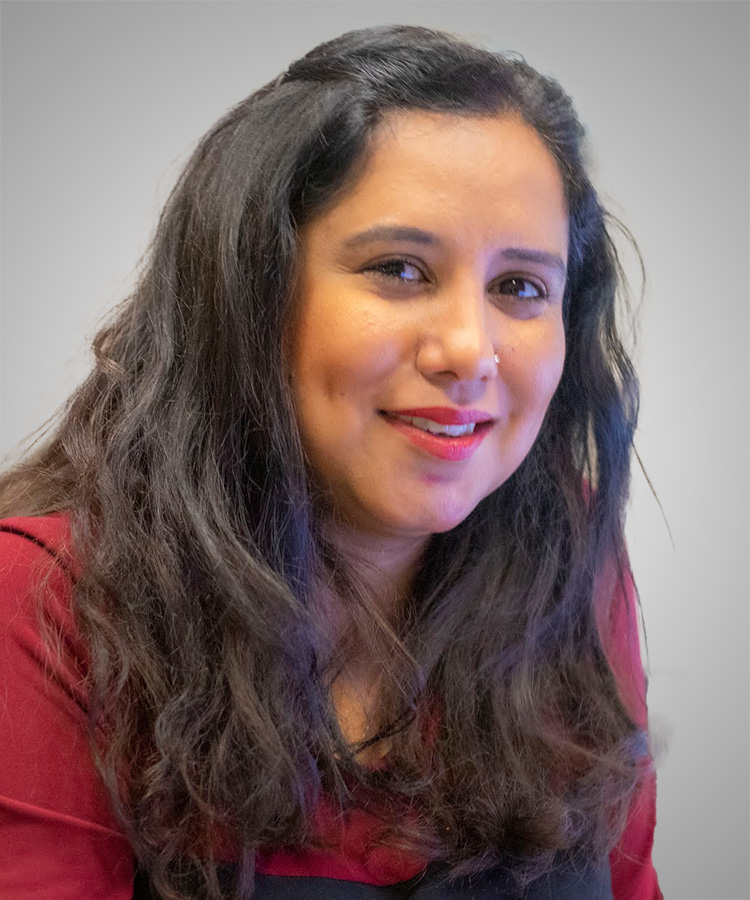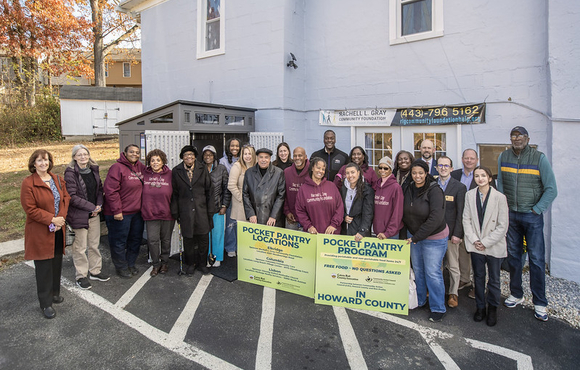“How do we see whatever a child is doing as a form of communication?” asks Dwanna Nicole, executive director of the Restorative Justice Partnership. “Are we curious enough to explore what is really going on? There is no such thing as “bad” behavior, they are asking for something. We need to think about how we can answer.”
The Restorative Justice Partnership seeks to answer that question by working with educators and schools to assist communities with creating a strong foundation where relationships are prioritized and the voices of those most pushed to the margins of society are centered. While restorative justice can address the harms caused by exclusionary punishment that disproportionately impacts youth of color, Restorative Justice Partnership’s approach broadens the belief that restorative justice is simply an “alternative to discipline.”
Central to this work is the creation of authentic, lasting, and strong community relationships.
“We got our start because educators were asking how they could build relationships with young people,” Nicole recalls. As a restorative justice practitioner and trainer, she began holding trainings on the practice of Circle Keeping, which is rooted in indigenous traditions that emphasize communal support and collective wisdom. She not only keeps Circles for educators, students, and families, but she trains them to be Circle Keepers themselves, so they can sustain the practice in their schools and communities for one another.
Circles intentionally create a space that lifts barriers between people; opening fresh possibilities for connection, collaboration, and mutual understanding.
“It’s about communication, sharing power, and being aware of your connection with others,” she says. This philosophy extends into schools and families, influencing broader community dynamics by enhancing interpersonal communications.
Circles for Those Who Mother
The power of restorative justice became even more personal for Nicole when she became a parent. Often feeling isolation, overwhelm, and guilt as she navigated the challenges of motherhood, Nicole says she felt like she didn’t always have an outlet for her emotions. And, during a special conversation with another mother, Robin Shipman, Nicole realized she wasn’t alone.
“Robin asked if a space existed where mothers could talk honestly about the associated challenges,” Nicole remembers. “I didn’t know of one, but I knew we could make it happen.”
Robin’s request led to the creation of Circles for Those Who Mother, a collaboration with Columbia Community Care, to support those who are caring for others, in any capacity.
“We intentionally use mother as a verb,” she says. “Anyone who cares for another person is mothering – whether that is your own child or another young person in your care full time, or not. Mothering takes many forms, and we are open to all.”
The Circle is designed for openness and vulnerability, where participants can share their experiences without seeking advice or solutions, and listen more than they speak.
“We work to create a space where people can share what is on their heart,” Nicole explains. “Everyone has an opportunity to share, but you don’t have to share; your presence in the space is just as important.”
The Circles meet about once a month, and for some the experience has resulted in powerful friendships – something Nicole and Erika Chavarria, executive director of Columbia Community Care, try to foster. In response to group requests, activities have extended outside the Circle space to include social gatherings, such as sushi making. Child care and food are provided at every Circle gathering, and Nicole is also exploring ways to keep Circles with the children.
For Nicole, keeping the Circles can be hard work. “Any time you are holding the feelings of others it can be heavy,” she said. “But, the thing that keeps me going is that I also need this space. I wish I had a space like this earlier, when I was experiencing feelings of inadequacy and unsure of who I could talk to without shame. If a space like this existed then I probably would not have been as hard on myself.”
Looking ahead, Nicole is excited about the potential to grow these circles and introduce more community members to restorative justice practices, which she believes have the power to weave a tighter, more resilient community fabric.
“Circles emphasize connection with one another,” she says. “There is a thread that connects us all, and our goal is to strengthen that thread. You are not meant to walk through this world alone, you are part of a community; circles are a way to find one.”
The next Circle for Those Who Mother is scheduled for November 6, 2024 from 5pm to 8pm at the Harriet Tubman Cultural Center in Columbia, MD. Childcare is provided by the Cultural Center staff, and the session opens with a meal from 5pm-6pm. Nicole encourages anyone who is seeking deeper connection and a place to release difficult emotions to attend.
“That is the beautiful thing about Circle – the Circle is a place where you can leave it. There does not need to be an answer, not everything requires a fix.”



